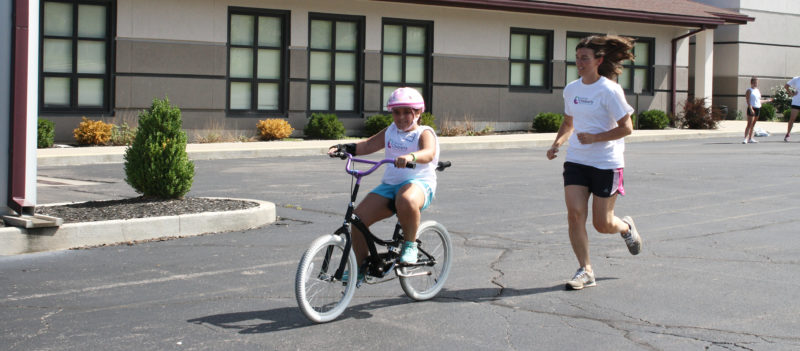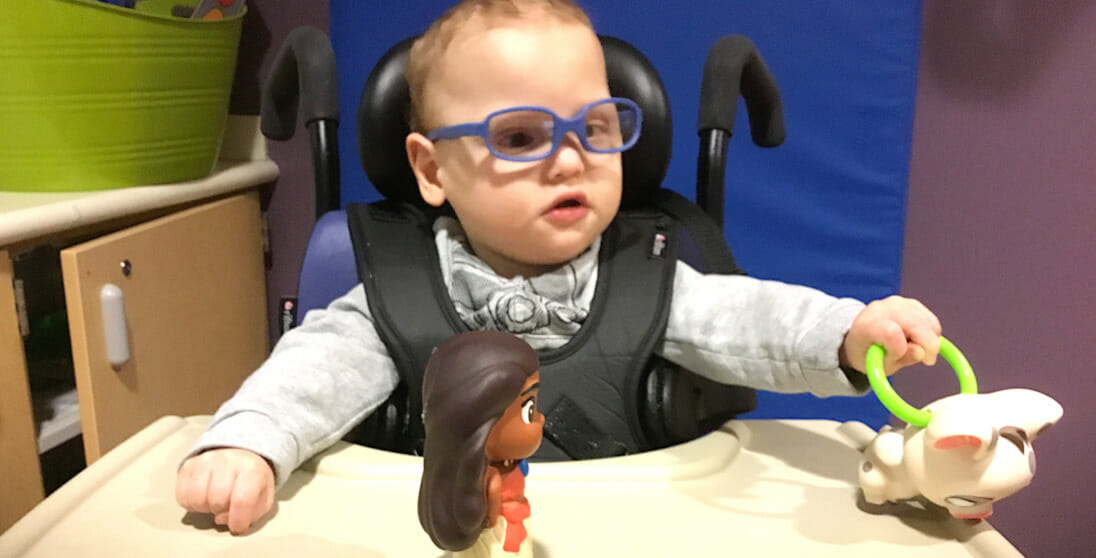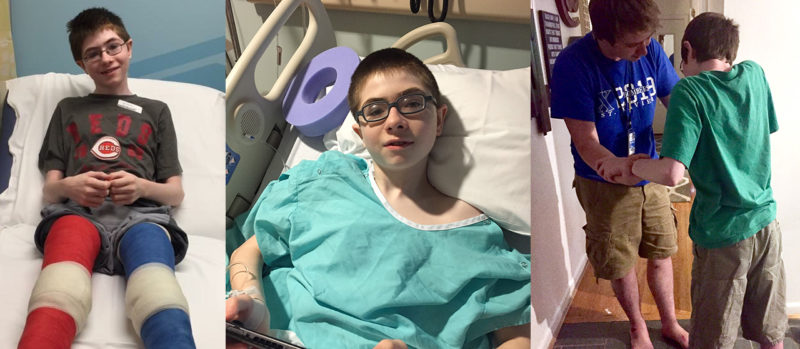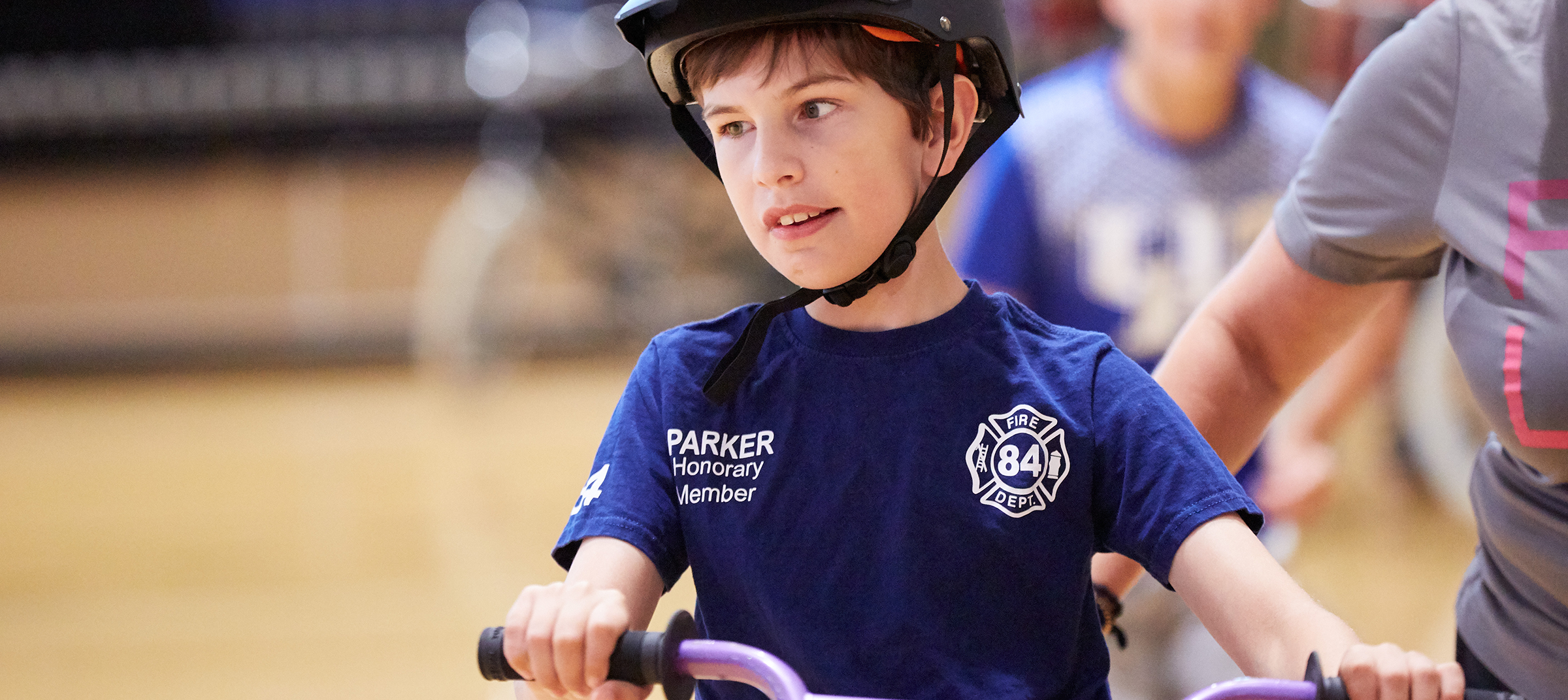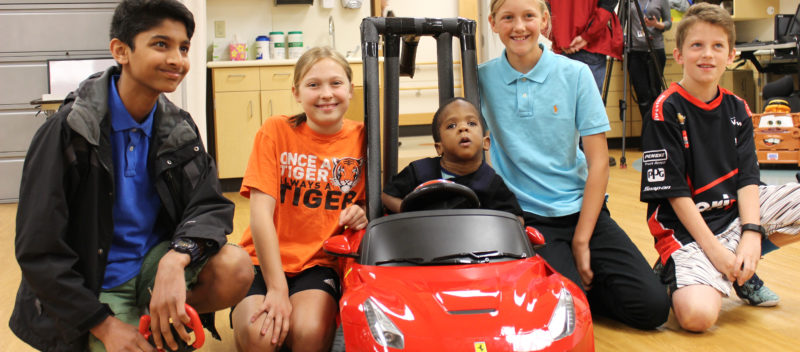Susan B. Anthony once said this. “Let me tell you what I think of bicycling. I think it has done more to emancipate women than anything else in the world. It gives women a feeling of freedom and self-reliance. I stand and rejoice every time I see a woman ride by on a wheel…the picture of free, untrammeled womanhood.”
This week, the tri-state bicycle riding community gains new members, and I stand and rejoice every time I see a BeWell bike participant ride by on two wheels…the picture of free untrammeled childhood, in spite of physical disability.
Bike riding is valuable activity to children. We analyzed hundreds of patient and family goals identified by Physical Therapy and Occupational Therapy (OTPT) visits here at Cincinnati Children’s. Not surprisingly, mobility is a commonly identified patient concern.
A drill down into the mobility data helped us to understand that “driving”, and specifically “bicycle riding” are among the most highly prioritized therapy goals of patients seen for episodic therapy services between 2013 and 2016 at our facility.
In response, we established the first annual BeWell bike camp and welcomed 30 participants on August 8. This camp is a partnership between our OTPT department, Stepping Stones and iCan Shine, with support from our Cooperative Society.
Most therapists ascribe to the theory of task specificity: if you want to learn how to ride a bike, you’ll have to practice riding a bike. That’s exactly what we did for the next five days. BeWell bike camp was conducted in daily, 75-minute training sessions. Participants got a heavy dose of practice at each visit.
They were flanked by an extraordinary army of good-hearted volunteers from all over the Cincinnati community, and supported (literally) by iCan Shine’s secret sauce, proprietary equipment that allows a bike technician to quickly and incrementally reduce the stability of the bike over time.
On the last day of camp, it’s our expectation that at least 80% of the camp participants will be independent on a two-wheeled bike. That’s the sort of victory that you write home about. The kids enrolled in this camp came in with stability and coordination deficits that make many simple, every day activities profoundly challenging. But it’s not the big win. All 30 of our riders will exit the gym at the end of camp puffed up with self-esteem and confidence, two of the most powerful tools in anyone’s life arsenal.
Offering a bike riding camp wasn’t just a response to an unmet need. It’s in good congruence with the care plans of most therapists, which often emphasize the critical importance of daily physical activity for children with chronic conditions.
This is not an unfamiliar message to anyone, really. The entire world needs to move more. Our health depends upon it. But children with physical disabilities like cerebral palsy demonstrate levels of physical activity that are approximately 30% lower than public health guidelines and double the maximum recommended sedentary time. The long-term effects of decreased physical activity and increased sedentary behavior can also lead to metabolic dysfunction, cardiovascular disease, and poor bone density and ultimately with very serious health implications, like reduced life expectancy.
The 2006 United Nations Convention on the Rights of Persons with Disabilities state that children with disabilities should be able to participate on an equal basis with others, including recreational, leisure, and sporting activities.
We surely agree. Welcome to the club, new roadies. We are glad we could help you on your way. Attack when life feels like a climb. Hammer, hammer, hammer. Don’t feel conscientious when your body doesn’t cooperate – every good cyclist who has been on a journey has also had a bonk day. Watch for slipstreams. A pocket of air can be magical. Use the draft of your peers when you need it. Their energy can become yours. Know that granny gears are not just for Grandmas. Don’t spend all your time in a chase group. You are good enough to take a pull and be the lead. Most importantly, pop a wheelie. This is a time to celebrate.

